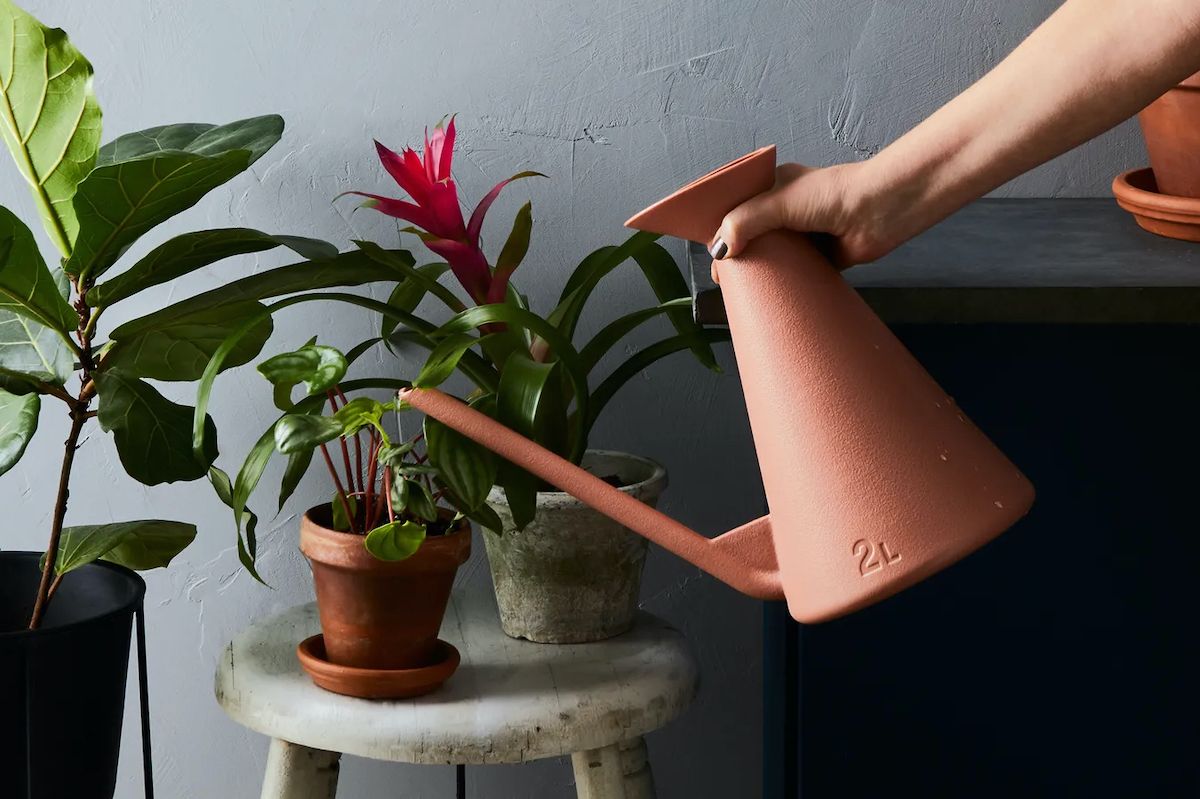It probably comes as no surprise that extreme summer heat is tough on plants. Because water is a precious and limited resource, we cannot rely solely on watering alone. Here are a few other things to give your plants extra TLC during a heat wave:
1. Prioritize your watering
In addition to picking the right timing for watering, the most important thing is to prioritize your watering. Your vegetables and container plants should get first dibs, because even a couple of sweltering hot days without watering can wreak havoc on them. Next are annual flowers, and any newly planted perennials, shrubs, and trees. Drip-watering and soaker hoses are ideal, but if you must use a hose or a watering can, make sure to water slowly and always water directly onto the base of the plant.
2. Leave your lawn alone
Grasses have a built-in protective mechanism against drought — they go into dormancy and pop back up with the return of cooler weather and rain. There's really no need to irrigate your lawn, unless it is a new lawn, then it needs to be watered deeply to get established, preferably early in the morning or late at night.
If later in the season, it turns out that your lawn did not survive the summer heat, you might have planted a type of grass that is not suitable for your region. There are cool-season and warm-season lawn grasses, each with many different varieties, and having the right kind is crucial.
Cut your grass to your mower's highest setting, around three to four inches. During a drought, resist the urge to mow your lawn. The longer the grass is, the more it shades the roots, and longer blades mean more photosynthesis and energy — all helping protect your lawn against heat.
3. Mulch, mulch, mulch
Adding natural mulch such as wood chips, shredded bark, straw, or other organic material around your plants keeps the soil cool and retains moisture in the soil, plus it suppresses weeds. Uncoated cardboard isn't pretty but it also works well. I use cardboard around my tomato plants, which saves me from weeding all summer. Steer clear of black plastic, which has the opposite effect of organic mulch — it heats the soil up even more.
Even with frequent watering, lettuce and leafy greens are prone to be the first victims of hot weather in your garden. You can protect them with a shade cloth to filter out some of the sunlight and reduce the temperature. Shade cloth comes in different grades, for vegetable gardens, choose one with a 40 to 60% shade percentage.
4. Give your vegetable plants a nutrient booster
Extremely hot weather unfortunately does not slow down damaging insects or the spread of many plant pathogens. Besides watering early in the day, keeping your veggies well fertilized is key, because healthy plants are better able to fend off insects or disease, if (or when) they hit. Liquid fertilizer such as fish emulsion diluted in water has the quickest effect, just make sure that you don't spill any on the plant, as it can burn the leaves.
5. Double up on containers
Planting containers, especially those made of black plastic, get extremely hot when exposed to sunlight, which literally cooks the roots. To protect the plant, place the container in a larger outer container and fill the space with gravel, mulch, or another inert material.
6. Reconsider your landscaping choices
This is something that you probably don't want to think about in the midst of a heat wave when you are busy keeping your plants alive: frequent and severe droughts and heat waves are a reality that gardeners must face. If your plants are struggling and only survive with lots of extra water and care, you might rethink what grows in your yard. There are many attractive options for waterwise plantings and xeriscaping, which is landscaping without the need for irrigation.
Native plants are usually more drought-tolerant than species that come from other parts of the world. The same applies to lawns that consist of native grasses. You won't have to worry about them surviving a hot dry summer, you cut down on frequent mowing, and you create a habitat for wildlife.




Shares